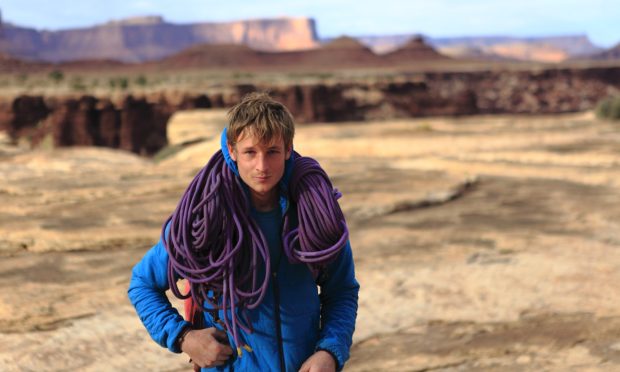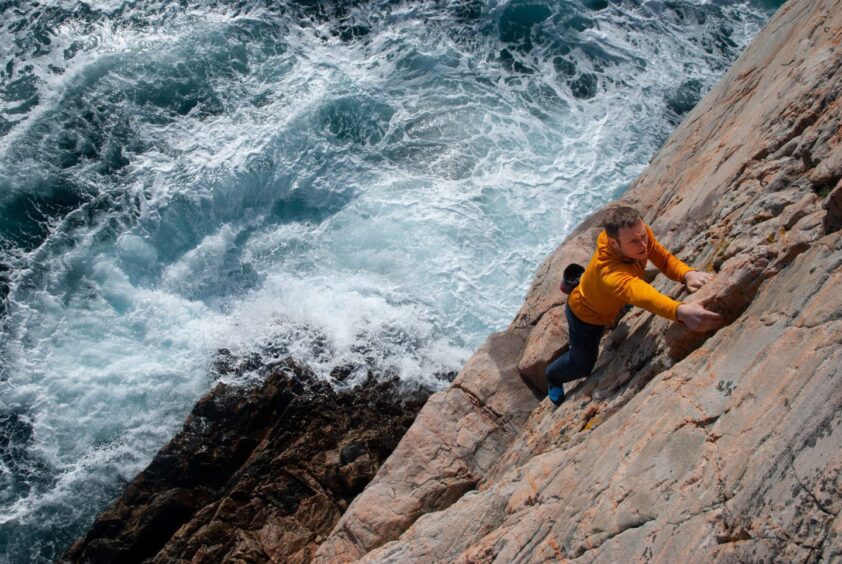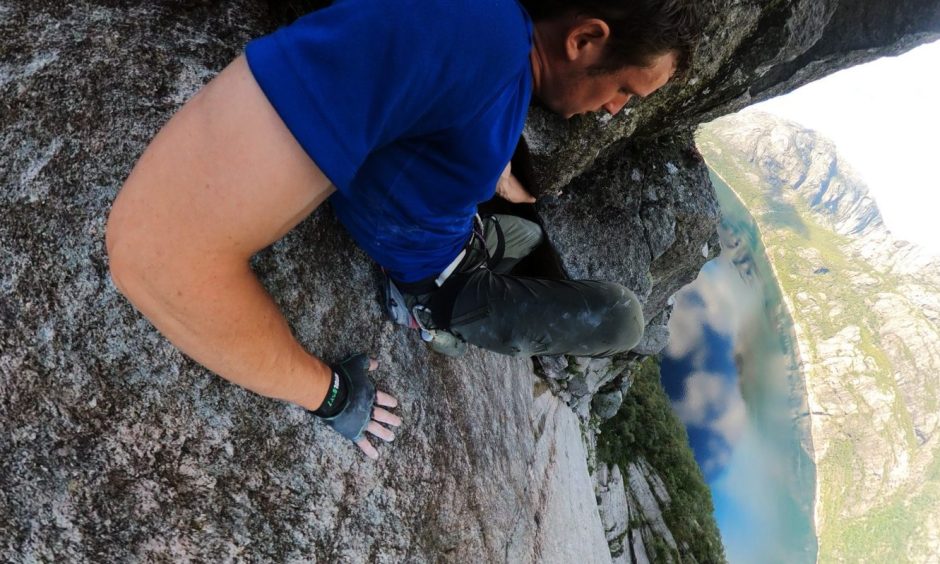Pete Whittaker was the first person to free-climb Yosemite National Park’s 3,000ft granite wall El Capitan in under 24 hours – solo.
The 33-year-old, who from hails the Peak District, completed the challenge using a rope, in 2016.
The route took him 20 hours and six minutes, smashing the previous fastest time of four days.
It was a huge achievement, but one that continues to be mired in confusion – especially as the following year, Alex Honnold became the first person to free-climb the perilous route without a rope.
Alex’s vertigo-inducing 2018 documentary, Free Solo, won an Oscar and turned him into the most famous rock climber in the world.
Journey of discovery
When Pete – one of the world’s top big wall solo climbers – heads to Eden Court in Inverness, he’ll delve deep into the intricacies of free solo climbing, taking audiences on a journey of discovery.
“What Alex did on El Capitan the year after me is another level – but they are both similar and different feats,” he says.
“Rope soloing is climbing alone but you use a rope, so you self-belay yourself as you climb, which is a very difficult skill.”
Hauling equipment on expeditions
Most of Pete’s big wall climbs see him at height for long periods, so he needs to go armed with food, drink, a stove, a ‘portaledge’ and ‘loo equipment’.
“If I’m spending more than one day climbing, then portaledges can feel like a luxury for sleeping on,” he says.
“I sometimes sleep on natural ledges – be I need to be sure I’ll make it up to them at a given time.”
What about those unavoidable toilet breaks? “Yes, I have to s*** into bags!” he laughs.
“There’s also a thing called a ‘poop tube’. In popular places like Yosemite you can’t just poop off the side of a cliff. That would be disgusting.”
Pete has written a book on crack climbing, having completed one of the world’s hardest ‘crack climbs’ in Utah in November 2023.
Breaking down barriers
His talk will break down the mental barriers he overcomes to be able to tackle such dangerous territory.
“It’s about minimising risk by doing lots of training and finding your comfort zone,” he reasons.
“I don’t like the idea of being in a situation that feels out of control – that’s the worst thing ever.
“So when people ask me if I’m an adrenalin junkie, I say I’m the complete opposite.
“I look for comfort so that whatever I’m doing feels easy. I always believe I’ll return unscathed.
“One of the most important things is understanding your own ability, knowing what your level is, and how fit and strong you are. That comes through years of climbing.”
Crack climb connoisseur
Pete says his ambition is not to seek out more free solo walls but instead to focus on his performance and further cultivate his crack climbing skills.
He’s climbed all over the world, and has enjoyed winter climbs in Scotland – in the Cairngorms, Glencoe, and on Ben Nevis.
- To book tickets for Pete’s talk, at Eden Court on February 21, click here.





Conversation